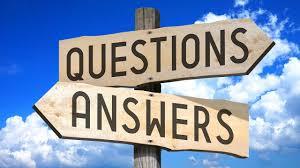How does the global arms trade influence conflicts and power dynamics around the world? By Hugo Keji

The global arms trade plays a critical role in shaping conflicts and power dynamics worldwide. By supplying weapons, technology, and military support, the arms trade influences everything from the intensity and duration of conflicts to the balance of power between states and non-state actors.
Here’s an overview of how the global arms trade affects these dynamics:
1. Fueling Conflicts
- Prolonging Wars: The availability of arms can prolong conflicts by enabling warring parties to continue fighting. Countries engaged in civil wars or regional conflicts may rely on external arms supplies to sustain their military efforts, leading to extended violence and instability.
- Escalating Violence: Access to advanced weaponry can escalate the scale and lethality of conflicts. The introduction of more sophisticated arms, such as drones, precision-guided missiles, or heavy artillery, can increase casualties, destruction, and the overall intensity of the conflict.
2. Shifting Power Dynamics
- Empowering Non-State Actors: The global arms trade often supplies weapons to non-state actors, including rebel groups, militias, and terrorist organizations. This can shift the balance of power within states, undermining governments and contributing to state fragility or collapse.
- Altering Regional Balances: The transfer of arms between states can shift regional power dynamics. For example, if one country receives advanced military hardware from a powerful ally, it may gain a significant advantage over its neighbors, potentially leading to an arms race or altering the regional balance of power.
3. Economic and Political Leverage
- Influence Over Recipient States: Major arms-exporting countries often use the sale of military equipment as a tool of political leverage. By controlling access to advanced weaponry, these countries can influence the policies and alignments of recipient states, shaping their strategic choices.
- Economic Dependencies: The arms trade can create economic dependencies between suppliers and recipients. Countries that rely heavily on imported arms may be more susceptible to pressure from their suppliers, who can use the threat of withholding arms to achieve political or economic objectives.
4. Impact on Global Security
- Destabilization: The widespread availability of arms can destabilize entire regions, especially when weapons flow into areas already prone to conflict. The influx of arms can increase the risk of war, terrorism, and criminal violence, undermining efforts to achieve peace and security.
- Arms Races: The global arms trade can spur arms races, as countries seek to match or exceed the military capabilities of their rivals. This can lead to increased militarization, diverting resources from social and economic development and heightening the risk of military confrontations.
AfriPrime App link: FREE to download...
https://www.amazon.com/Africircle-AfriPrime/dp/B0D2M3F2JT
5. Humanitarian Consequences
- Civilian Casualties: The proliferation of arms contributes to the high number of civilian casualties in conflicts, particularly when weapons are used indiscriminately or fall into the hands of groups that do not adhere to international humanitarian law.
- Displacement and Refugees: Conflicts fueled by the arms trade often lead to large-scale displacement, creating refugee crises and humanitarian emergencies that can destabilize neighboring regions and strain international relief efforts.
6. Global Power Structures
- Dominance of Major Powers: The global arms trade is dominated by a few major powers, such as the United States, Russia, China, and several European countries. These nations use arms exports to project power and influence globally, often shaping the security environments of other regions in ways that align with their strategic interests.
- Influence in Strategic Regions: Arms exports are often concentrated in strategically important regions, such as the Middle East, where geopolitical competition is intense. By supplying weapons to allies in these regions, major powers can maintain influence and control over key strategic areas.
7. Legal and Ethical Challenges
- Illicit Arms Trade: A significant portion of the global arms trade occurs illicitly, with weapons being smuggled across borders and sold on black markets. This illegal trade often supplies criminal organizations, insurgents, and terrorist groups, exacerbating violence and undermining state authority.
- Human Rights Abuses: The arms trade can contribute to human rights abuses when weapons are sold to regimes that use them to suppress dissent, violate human rights, or commit atrocities against civilian populations. This raises ethical concerns and challenges the international community's ability to regulate and control arms transfers effectively.
8. Arms Control and Non-Proliferation Efforts
- Challenges to Arms Control: The global arms trade complicates efforts to achieve arms control and non-proliferation. While international treaties and agreements aim to regulate the trade and prevent the spread of weapons of mass destruction, the demand for conventional arms remains high, making comprehensive control difficult.
- Diplomatic Tensions: Disagreements over arms sales can lead to diplomatic tensions between exporting and importing countries, as well as between rival states. Disputes over arms transfers can strain alliances, disrupt international cooperation, and even lead to sanctions or other punitive measures.
In summary, the global arms trade is a powerful force that shapes conflicts and power dynamics worldwide. It influences the duration and intensity of conflicts, shifts regional balances of power, and provides major powers with tools of influence and control. However, it also poses significant challenges to global security, stability, and humanitarian norms, making it a complex and often contentious aspect of international relations.
AfriPrime App link: FREE to download...
- Questions and Answers
- Opinion
- Motivational and Inspiring Story
- Technology
- Live and Let live
- Focus
- Geopolitics
- Military-Arms/Equipment
- Seguridad
- Economy
- Beasts of Nations
- Machine Tools-The “Mother Industry”
- Art
- Causes
- Crafts
- Dance
- Drinks
- Film/Movie
- Fitness
- Food
- Juegos
- Gardening
- Health
- Home
- Literature
- Music
- Networking
- Other
- Party
- Religion
- Shopping
- Sports
- Theater
- Health and Wellness
- News
- Culture

